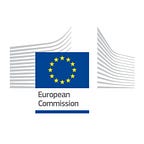Plastic, plastic everywhere and what we do about it?
There are now more microplastic particles in our seas than stars in the galaxy! Climate change and plastic pollution are the two main challenges that we face today. We are now trying to move towards a circular economy that will help protect the environment and also reduce plastic pollution.
There are as many as 51 trillion microplastic particles in the seas — that’s 500 times more than stars in our galaxy.¹
Microplastics have been found in our food and drink, including beer, honey and water. Unsurprisingly, plastic particles have also recently been discovered in human stool. Since these particles are also ingested by marine animals, they are now a part of the food chain and they can impact our health in ways we might not be aware of today.
The first ever EU-wide plastic strategy
In December 2017, we launched a public consultation on single-use plastics. An overwhelming 98.5% of the respondents said it was “necessary” to act on single-use plastics, and 95% considered it “necessary and urgent.”
As a result, the first ever Europe-wide plastics strategy started to shape up in early 2018. We proposed to ban 10 single-use plastic products most often found on Europe’s beaches and seas, as well as lost and abandoned fishing gear.
Ready for change?
Our campaign Be ready to change! hopes to inspire people to use sustainable and easily available alternatives to the ten most commonly found plastics on Europe’s beaches. Together these 10 single-use plastics constitute 70% of all marine litter items. So, the next time you go grocery shopping take reusable bags with you. And for your takeaway coffee, there are again practical and sustainable alternatives easily available. A nice reusable coffee mug could even reflect your personality! With a little planning and foresight, we can easily replace these 10 plastics that we use in our daily life.
Everyone on board
Our Plastics Strategy is also focused on getting the industry and producers on board to cover the costs of waste management and clean-up. The industry will also be given incentives to develop less polluting alternatives for these products. We have already received over 60 pledges, many from big names in the industry who will promote recycled plastics.
European countries will also be obliged to collect 90% of single-use plastic drinks bottles by 2025. They may attempt to achieve this through deposit refund schemes. They will need to set national reduction targets to reduce the use of plastic food containers and drinks cups. They will also be obliged to make citizens aware of the negative impact of littering of single-use plastics and the sustainable alternatives that are available to them.
From consumers to industry to EU countries, we are bringing on board different stakeholders to ensure that we all work together to reduce plastic pollution and make things better for people and the environment.
A circular economy for the future
We aim to transition towards a more circular economy that will protect the environment from plastic pollution while fostering growth and innovation. Under our new plans, all plastic packaging on the EU market will be recyclable by 2030. The consumption of single-use plastics will be reduced and the intentional use of microplastics will be restricted.
Beyond the plastics strategy, the EU is the first major economy that has transformed its promises under the Paris Agreement into concrete goals. As President Juncker said during the State of the Union 2018, “We want to leave a healthier planet behind for those that follow.” This initiative is a part of the process. It is important for each of us to now to be ready to change!
